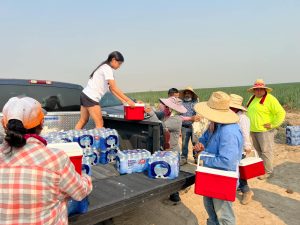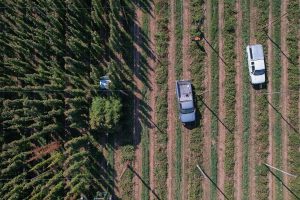 Billings, Mont. – Mabel Dobbs, a rancher from Weiser, Idaho, and member of the Western Organization of Resource Councils, issued the following statement on decisions this week affecting independent cattle producers.
Billings, Mont. – Mabel Dobbs, a rancher from Weiser, Idaho, and member of the Western Organization of Resource Councils, issued the following statement on decisions this week affecting independent cattle producers.
Today, the Grains Inspection, Packers and Stockyards Administration announced the Farmer Fair Practices Rules. The rules contain an interim final rule on competitive injury, a proposed rule on unfair practices and unreasonable preference, and a proposed rule on the tournament system and poultry. GIPSA will set a 60-day comment period.
On December 12, a Montana magistrate judge recommended granting a preliminary injunction that would stop the government from letting the Montana Beef Council collect and spend producer checkoff dollars without prior permission from each cattle producer. The Ranchers-Cattlemen Action Legal Fund, United Stockgrowers of America, or R-CALF USA, challenged the process.
Statement by Mabel Dobbs on behalf of WORC
“This is a good week for independent cattle producers. First, the favorable ruling on the R-CALF beef checkoff case, and now USDA releases the Farmer Fair Practice Rules. We are getting done what has been needed for years and years.
“WORC is especially glad to see that the final rules make it clear that a producer harmed by unfair practices does not have to demonstrate harm to the entire industry to win in court. This standard is nearly impossible for an individual rancher to meet and was not what Congress intended when it passed the Packers and Stockyards Act.
“These rules are especially important now, with just four meatpackers controlling over 85 percent of the beef market and dictating the terms of production, marketing and pricing for cattle producers. The rancher needs access to the courts when meatpackers step over the line. This rule will help restore that.
“For years, WORC members have maintained that it is unconstitutional to require independent cattle producers to subsidize private corporations, like the beef councils. We don’t agree with their message that all beef, including beef imported from other countries, is created equal, and we ranchers shouldn’t have to fund that message with our checkoff dollars. This week’s finding is just an initial step, but it’s an important one.”
Based in Billings, Mont., the Western Organization of Resource Councils is a seven-state network of grassroots community organizations working to strengthen communities and shape policies on energy and agriculture.



